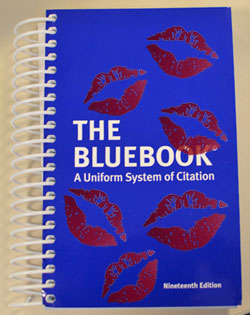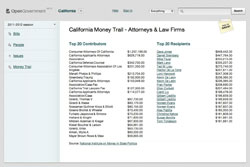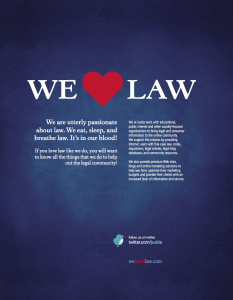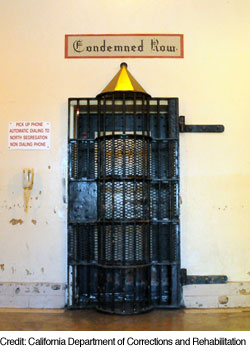Two months ago, a huge celebration marked the repeal of “Don’t Ask, Don’t Tell” (DADT), the policy that allowed the military to treat gays and lesbians differently than heterosexual members of the armed forces. The repeal represented a big win for the LGBT community.
Articles Posted in February, 2011
 This week, I wanted to note a recent New York Times editorial, “Dangerous Threats.” The piece comments generally on the disturbing trend of increased threats made to federal judges and prosecutors.
This week, I wanted to note a recent New York Times editorial, “Dangerous Threats.” The piece comments generally on the disturbing trend of increased threats made to federal judges and prosecutors.
The Times focused on remarks made earlier this month by Representative Denny Rehberg (R-MT) before a joint session of the Montana Legislature. In speaking on a recent decision about wolves and the Endangered Species Act, Congressman Rehberg wondered, “How can we put some of these judicial activists on the endangered species list. I am still working on that!”
 While some retailers are celebrating Presidents Day with aggressive discounts on ENERGY STAR® qualified appliances, we thought a more respectful commemoration that honored the accomplishments of George Washington and Abraham Lincoln would be appropriate. If you are a presidential trivia afficiando, you probably already know that in the U.S. Code, today’s legal public holiday is Washington’s Birthday, not Presidents Day. See how many of the following questions you can answer.
While some retailers are celebrating Presidents Day with aggressive discounts on ENERGY STAR® qualified appliances, we thought a more respectful commemoration that honored the accomplishments of George Washington and Abraham Lincoln would be appropriate. If you are a presidential trivia afficiando, you probably already know that in the U.S. Code, today’s legal public holiday is Washington’s Birthday, not Presidents Day. See how many of the following questions you can answer.
- George Washington is often referred to as the “Father of his country.” Did he sign the Declaration of Independence?
 Have you heard that Judge Richard Posner hates the Bluebook? Of course you have. It’s been all over the blawgosphere lately. But thanks to the UGA Law Library Blog, which posted a direct link to the article, I actually read it. True to form, the article is brief, articulate, and humorous. As someone who is regularly frustrated by citation practices, I could appreciate Posner’s points. Particularly interesting is the inclusion of the style sheet that Judge Posner provides to his own clerks.
Have you heard that Judge Richard Posner hates the Bluebook? Of course you have. It’s been all over the blawgosphere lately. But thanks to the UGA Law Library Blog, which posted a direct link to the article, I actually read it. True to form, the article is brief, articulate, and humorous. As someone who is regularly frustrated by citation practices, I could appreciate Posner’s points. Particularly interesting is the inclusion of the style sheet that Judge Posner provides to his own clerks.
By far, the best tip I got out of his article was a reference to a terrific piece by Professor Ian Gallacher: Cite Unseen: How Neutral Citation and America’s Law Schools Can Cure our Strange Devotion to Bibliographical Orthodoxy and the Constriction of Open and Equal Access to the Law. 70 Albany Law Rev 491 (2007). Professor Gallacher argues that the current citation format fetish reinforces the West/LexisNexis caselaw duopoly:
 Amazon is no stranger to tax disputes. Thus far, the typical tax claim concerning the online retail goliath involves its obligation to collect sales taxes. Several states have contended that the presence of Amazon Associates within its borders was sufficient to meet the substantial nexus mandated by the Commerce Clause in order for a state to require that a retailer collect sales taxes for purchases by residents within the state. Amazon usually “fixes” that problem by terminating its Associates in the complaining state.
Amazon is no stranger to tax disputes. Thus far, the typical tax claim concerning the online retail goliath involves its obligation to collect sales taxes. Several states have contended that the presence of Amazon Associates within its borders was sufficient to meet the substantial nexus mandated by the Commerce Clause in order for a state to require that a retailer collect sales taxes for purchases by residents within the state. Amazon usually “fixes” that problem by terminating its Associates in the complaining state.
 Sheba, Justia’s original HugPug, turns seven today!
Sheba, Justia’s original HugPug, turns seven today!
For those of you lucky enough to have dogs around while you work, you know how wonderful it is to have these four-footed friends at any office.
Sheba, and fellow Justia pugs, Rio and Belle, along with other doggie friends Tank (aka, Le Réservoir Dog) and Mino, bring us plenty of laughs, provide unconditional love and relieve more than a little of life’s daily stresses.
 Last month, while researching a post on the politics and money site, MapLight.org, I came across another interesting online resource: OpenGovernment.org. The site is still very much in beta, but after having had a chance to check it out a little bit more this weekend, I thought it worth mentioning here to our readers.
Last month, while researching a post on the politics and money site, MapLight.org, I came across another interesting online resource: OpenGovernment.org. The site is still very much in beta, but after having had a chance to check it out a little bit more this weekend, I thought it worth mentioning here to our readers.
The goal of OpenGovernment, supported in part by the great folks who run OpenCongress.org, is to provide and promote government transparency on the state, city and local levels. Still in its infancy, the site has launched and tracks the following states: California, Louisiana, Maryland, Texas, and Wisconsin. Given that Justia is based in the Golden State, I decided to take a look at what resources and information are available for California. Similar to the tools available at OpenCongress, OpenGovernment enables users to drill down and learn more about what’s happening in Sacramento by looking at individual bills, following specific legislators in the Senate and Assembly, or browsing by issue. In addition, the site has its own “Money Trail” which lists publicly-available information about campaign contributions made to members of the California state legislature. As examples, check out Big Tobacco, Telecommunications and Casinos and Racetracks. You can also look up your representatives by entering a ZIP code or an address, and one hopes in the future that we’ll also see a mash up geo-tracking feature that displays bills which specifically impact where one lives, similar to the feature found on govpulse.
 Today is Valentine’s Day, and we’d like to take this opportunity to write our valentine to the free legal information projects we love. We’ve talked about all of these projects before, but on this day that celebrates love, it seems a perfect time to praise them again.
Today is Valentine’s Day, and we’d like to take this opportunity to write our valentine to the free legal information projects we love. We’ve talked about all of these projects before, but on this day that celebrates love, it seems a perfect time to praise them again.
Law.gov and Public.Resource.Org
All who love free legal information as much as we do, owe a great deal of gratitude to Carl Malamud of public.resource.org and to the many people working with him on the Law.gov movement. Even before creating the Law.gov project, Malamud had begun gathering free cases and codes and getting them online in a free public archive. We first blogged about his work back in September of 2007, but he has been working to make public domain resources truly public for years.
 Over the last couple of years, he has spearheaded a movement to get the federal government to put all primary legal materials online in bulk on a suggested domain name of law.gov, following the similar federal project known as data.gov which contains bulk data from a variety of government resources. With funding from Google as part of their 10^100 project and the support of many including others listed here, we look forward to the day soon that all primary legal materials are truly free and available to all.
Over the last couple of years, he has spearheaded a movement to get the federal government to put all primary legal materials online in bulk on a suggested domain name of law.gov, following the similar federal project known as data.gov which contains bulk data from a variety of government resources. With funding from Google as part of their 10^100 project and the support of many including others listed here, we look forward to the day soon that all primary legal materials are truly free and available to all.
 Before the California Commission on the Fair Administration of Justice (CCFAJ), then California Chief Justice Ronald George testified that “California’s death penalty system is dysfunctional.” A review of year-end statistics certainly confirms the former Chief Justice’s conclusion.
Before the California Commission on the Fair Administration of Justice (CCFAJ), then California Chief Justice Ronald George testified that “California’s death penalty system is dysfunctional.” A review of year-end statistics certainly confirms the former Chief Justice’s conclusion.
While the death penalty appears to be waning across the country, California remains somewhat of an outlier. In 2010, California courts sentenced 34 persons to death, which accounted for nearly a third of of the death judgments nationwide. And within the state, Los Angeles County, Riverside County and Orange County have become, as the ACLU put it, “killer counties.” They accounted for 83% of the death sentences in 2009, while representing 41% of the population. That year, Los Angeles County sentenced more people to death than any other state, much less any other California county. Of the 34 death cases, almost 62% were from these three counties.
 We’re guessing that Sony has its PS3 controllers in a twist today. Sony has been on a legal warpath against PS3 hackers, who figured out and shared the game maker’s jailbreak code. But all that changed yesterday.
We’re guessing that Sony has its PS3 controllers in a twist today. Sony has been on a legal warpath against PS3 hackers, who figured out and shared the game maker’s jailbreak code. But all that changed yesterday.
That’s when Long Island geek Travis La Marr tweeted Sony’s PS3 jail break code to @TheKevinButler, a twitter account run by Deutsch, the ad agency that Sony hired to run its PS3 campaigns. Kevin Butler is the name of a geeky character who appears in PS3 commercials. It seems that the person managing Butler’s tweets at the ad agency RT’d La Marr’s tweet, include the PS3 jailbreak code, to the world.
